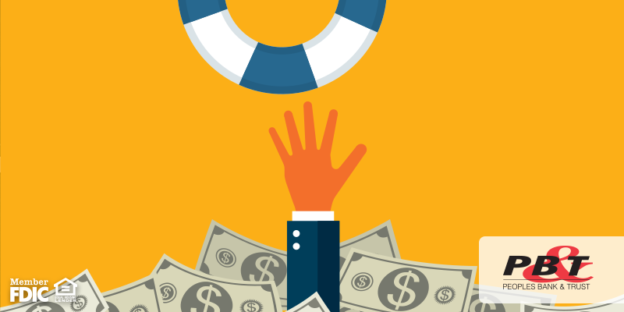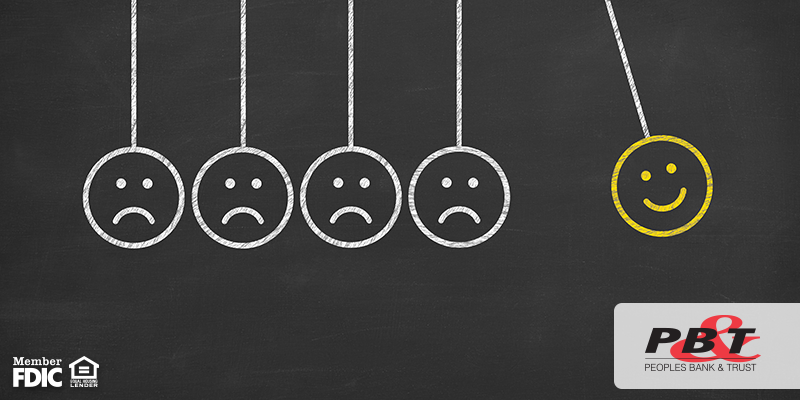
Savvy savers are full of great ideas and qualities, so those who aren’t the best at keeping our finances in check are always left wondering how they do it. Thankfully, Peoples Bank & Trust Co. offers a bucket list with some of the expert saver’s top priorities you can strive to meet!
Pay off your credit card debt.
As the average American has $16,000 worth of credit card debt, focusing on paying off yours can be a big financial undertaking. There are different methods you can utilize such as The Snowball Method, which includes making minimum payments on all your accounts and putting what you have left towards the account with the smallest balance. The Avalanche Method involves paying off the largest amount of debt first and continuing on until everything has been paid.
Say goodbye to student loans.
Student loans can be one of the longest standing debts in many households. With the average outstanding loan balance being at $37,000, starting a routine to pay off these loans should be a top priority. By committing to a certain amount each month to pay, you’ll see your loans decrease quickly. Be sure to put extra cash towards the loans with the highest interest rates or try to refinance to a lower interest rate.
Buy a home.
Being a homeowner is a big step to take in life but well worth it. In some areas, buying a home and paying your mortgage each month can be cheaper than paying rent. Figuring out how much home you can afford and getting pre-approved are your first steps to financial success. A rule of thumb can be to take your monthly after-tax income, subtract all current debt payments and then multiply that number by 25%. This is a good indicator of how large your monthly payment can be.
Set up an emergency fund.
It’s sad to say, but bad things are bound to happen. Instead of being caught off guard when a pipe bursts or you need an emergency surgery, build an emergency fund. Having money put aside for the unexpected will help life be much more enjoyable when problems arise. Depending on your income, monthly costs and lifestyle, try to have between three and nine months’ worth of expenses saved in your emergency fund. See about setting up a savings account with us for items just like this!
Get a raise.
Negotiating for a raise can be tricky, but you won’t be able to move forward financially if you don’t push for what you deserve. Focus on all of the benefits you have brought to the company and changes you’ve made for the better. However, don’t expect more than a 4-5% bump, as asking for too much can be viewed as greedy.
This bucket list is what all expert savers strive for as an end goal. Put into action a few of these tips to allow yourself the monetary success you deserve! Feel free to give us a call or stop in to discuss our different savings options!
Peoples Bank & Trust Co.
Member FDIC
Equal Housing Lender










